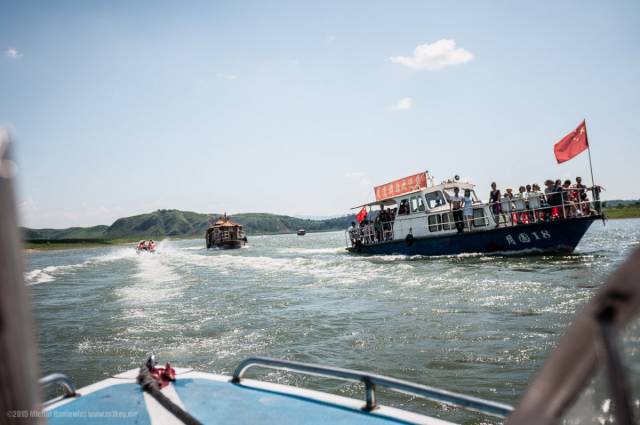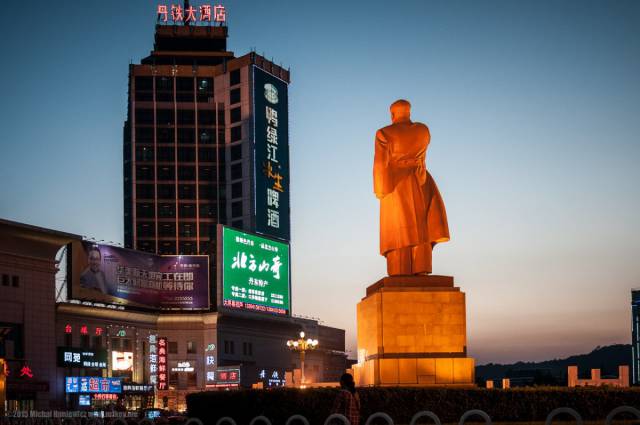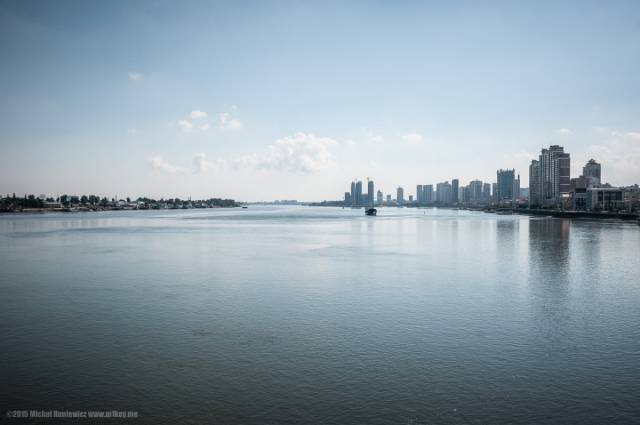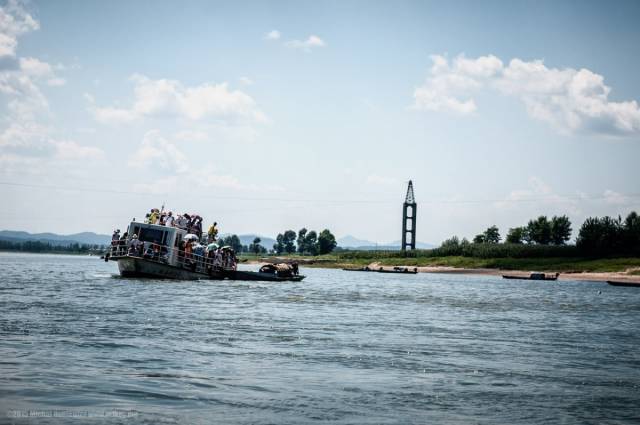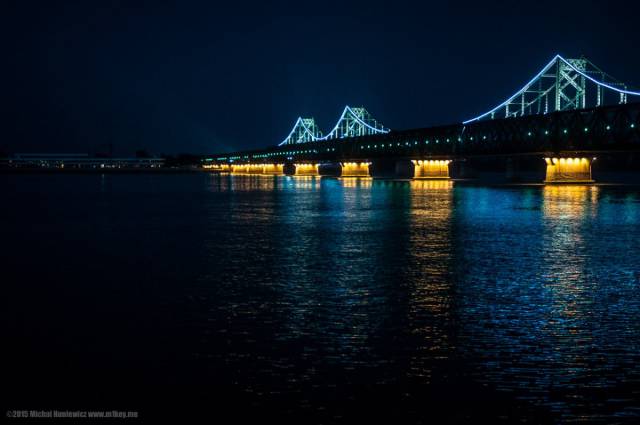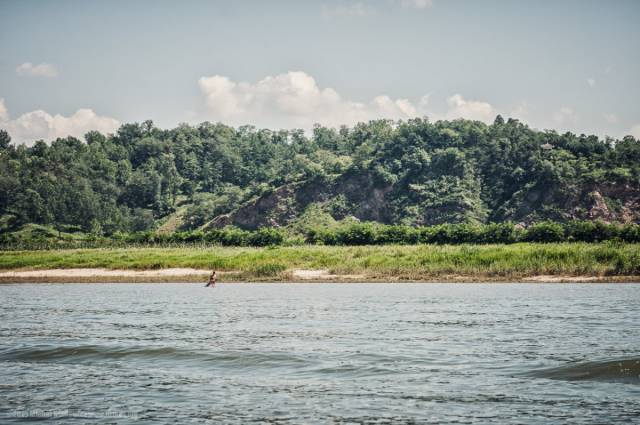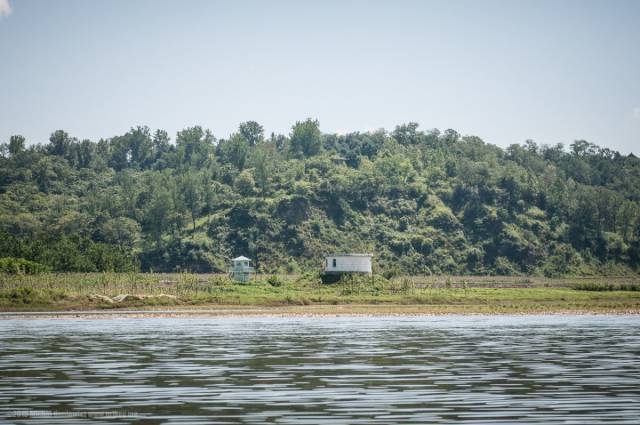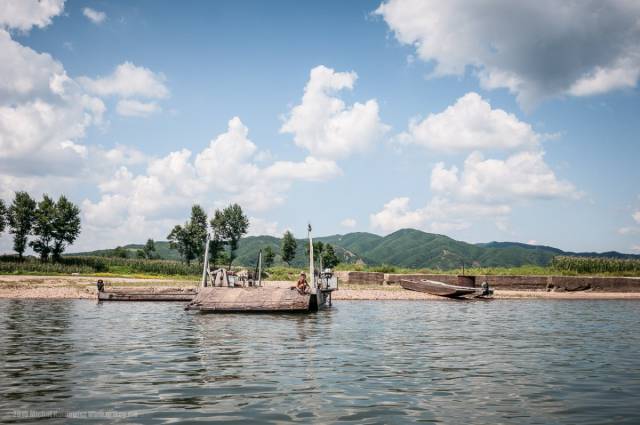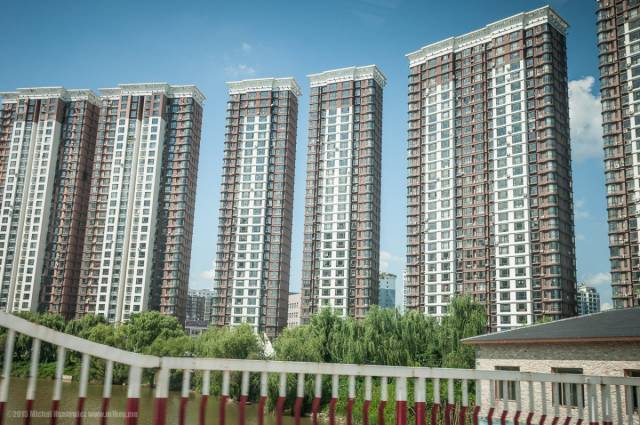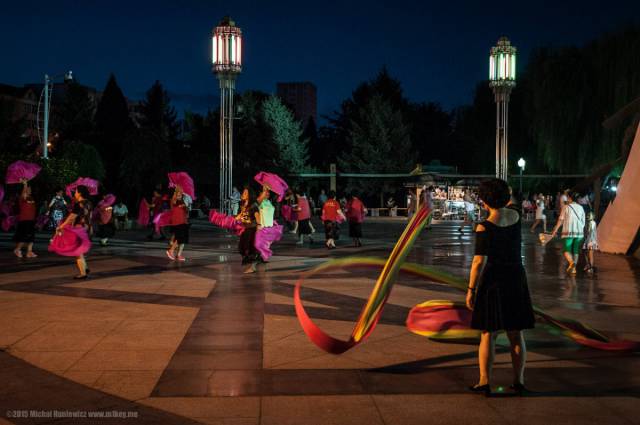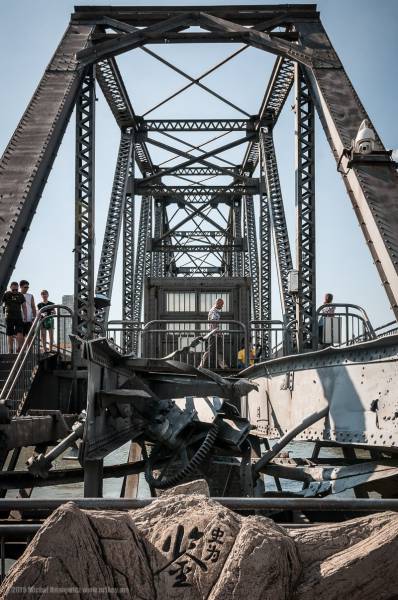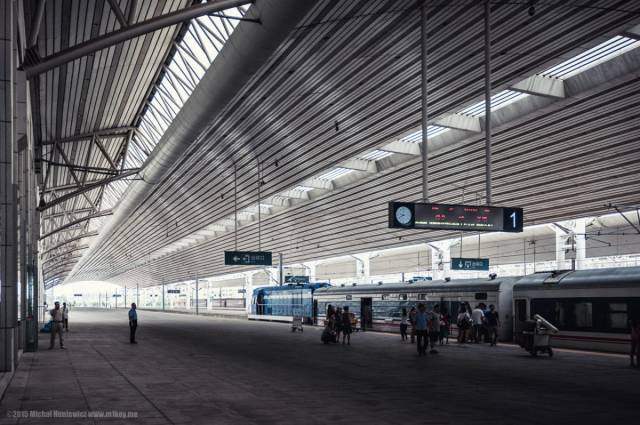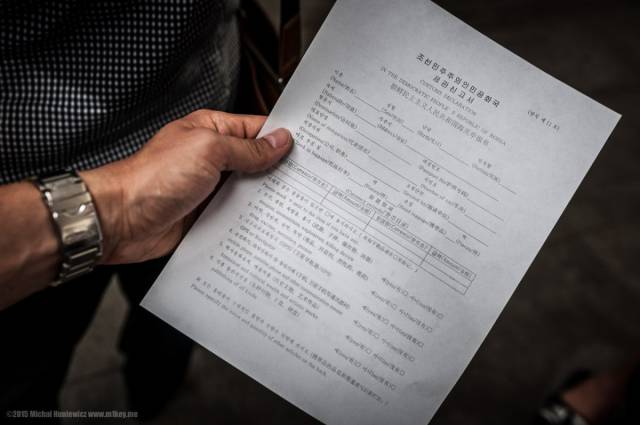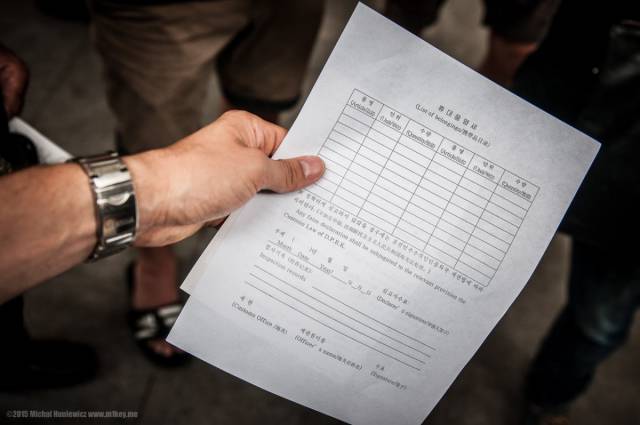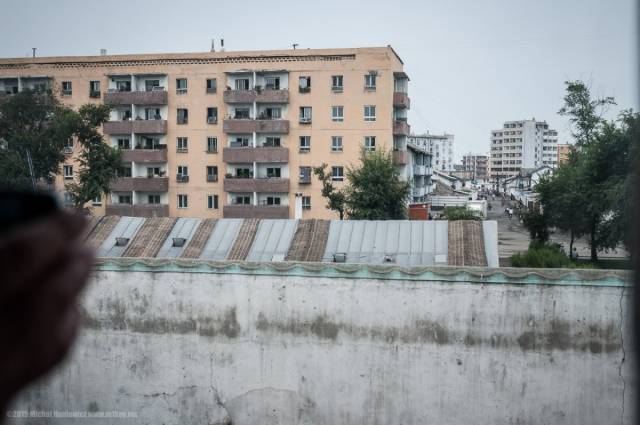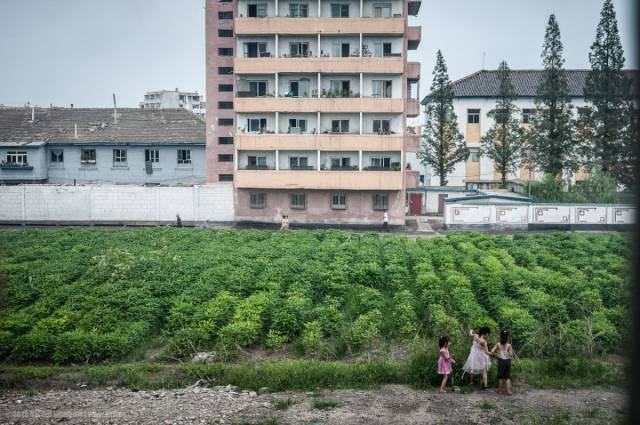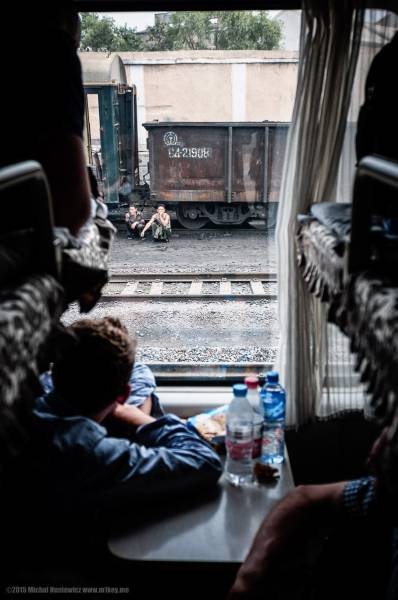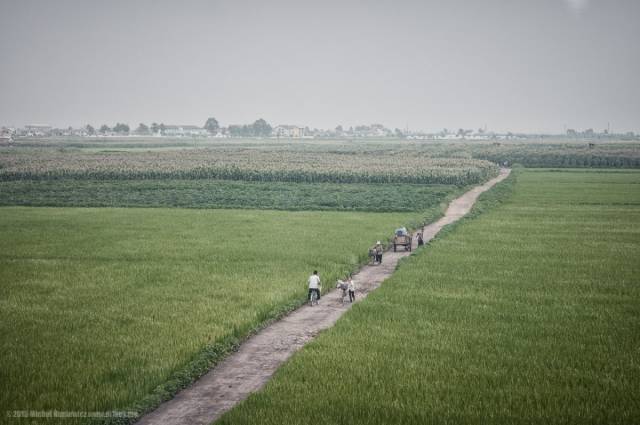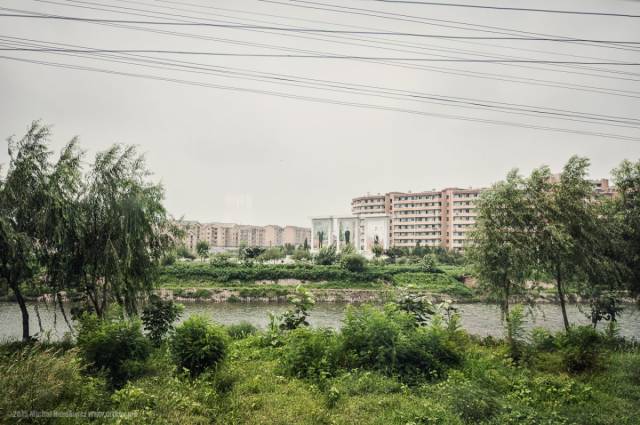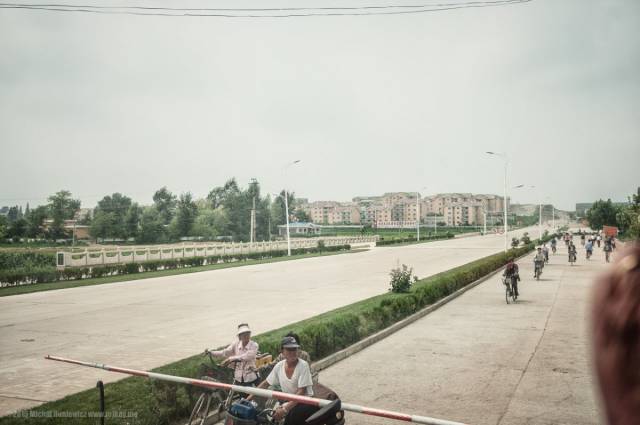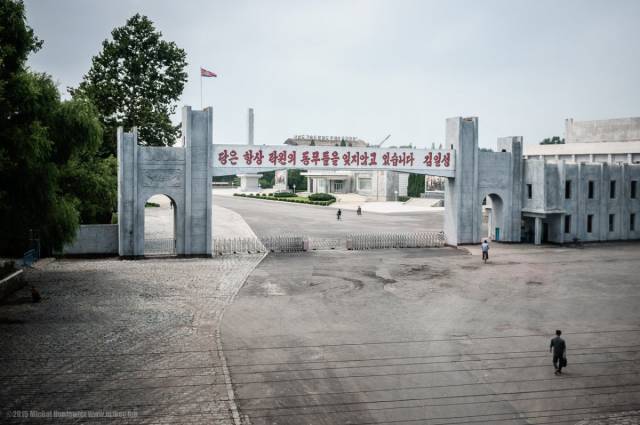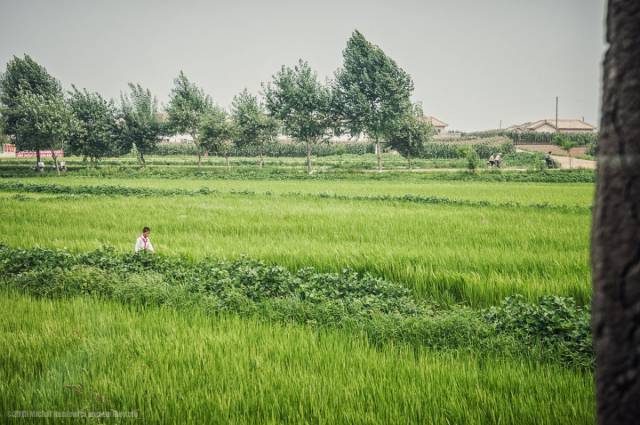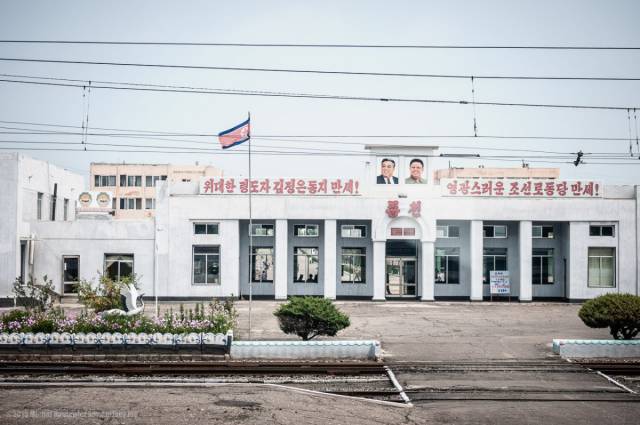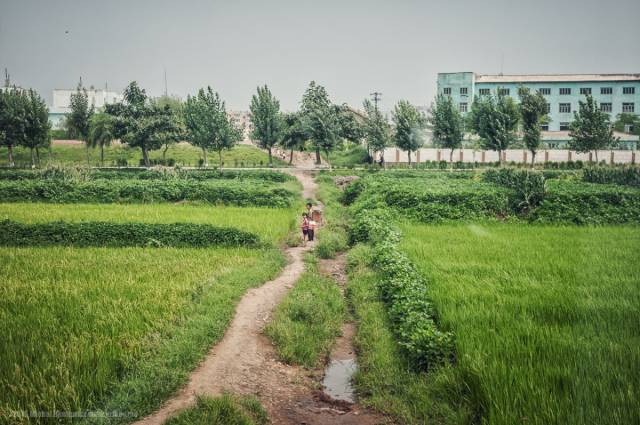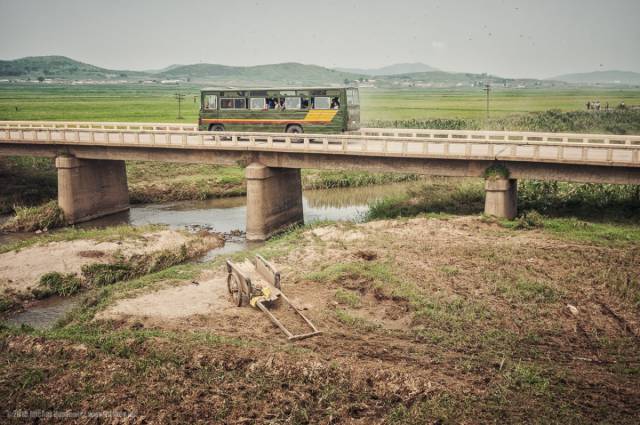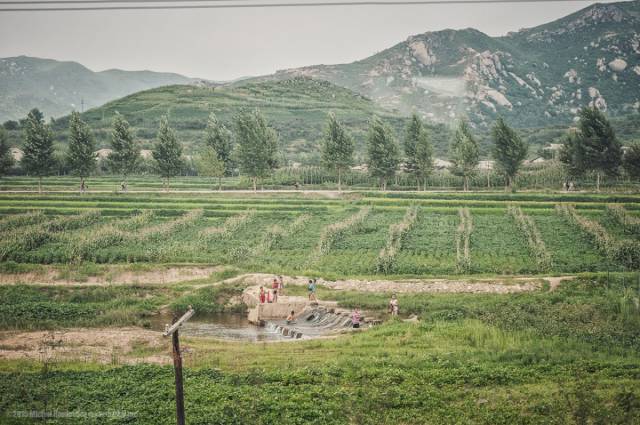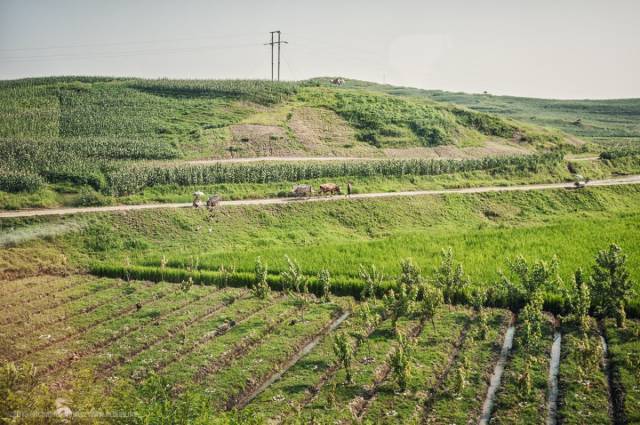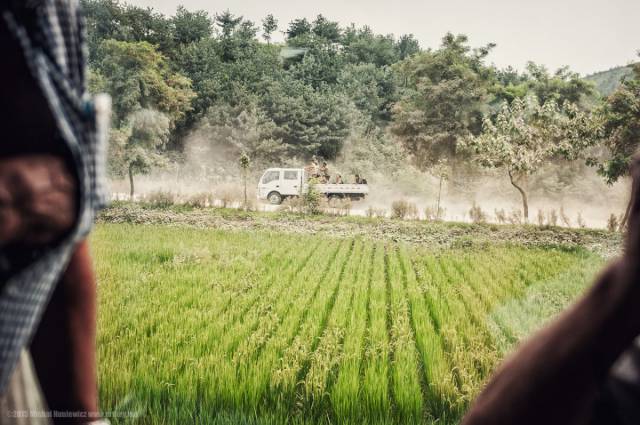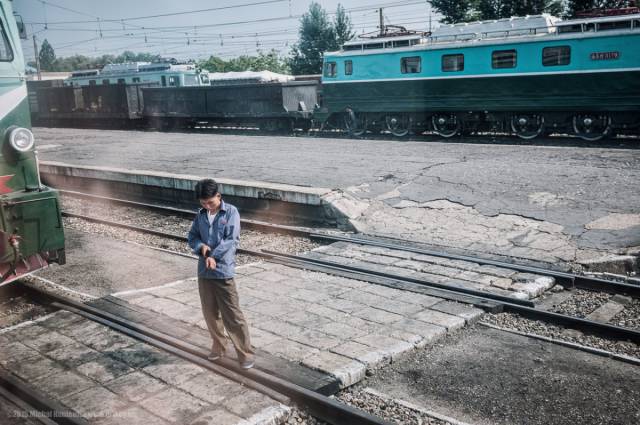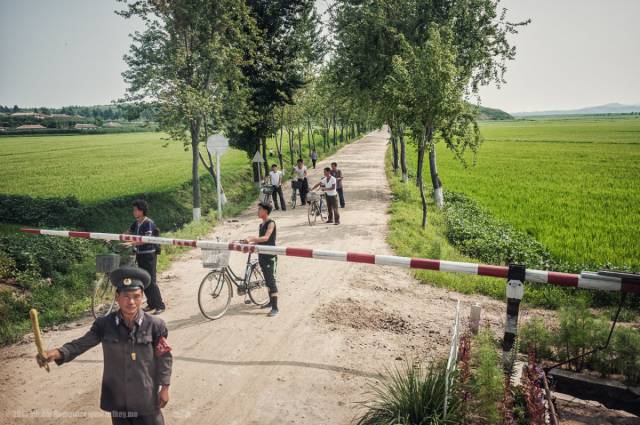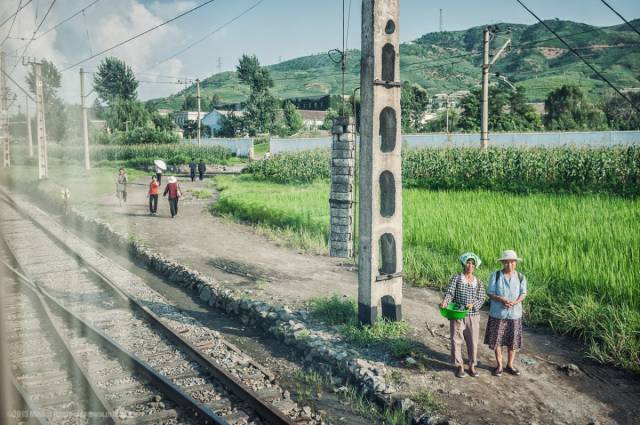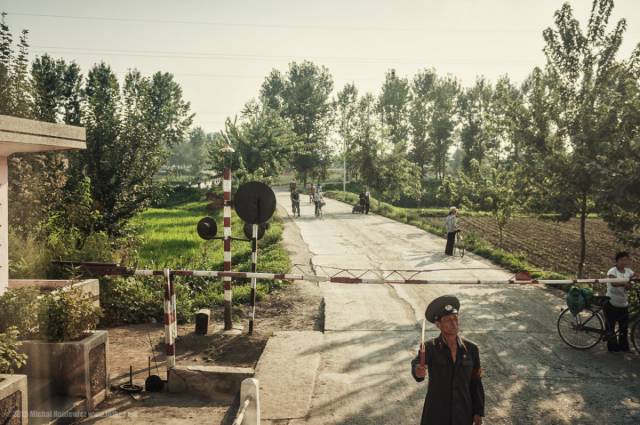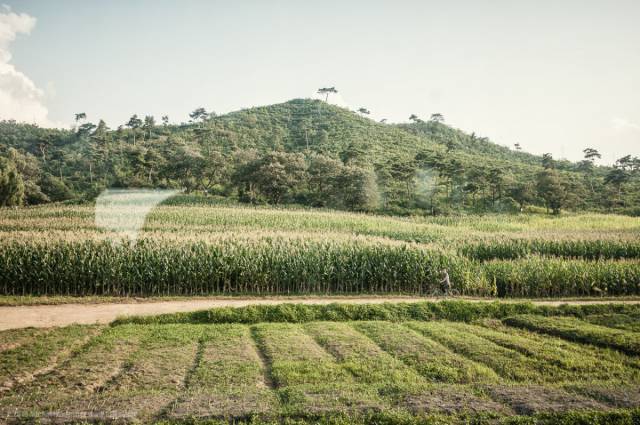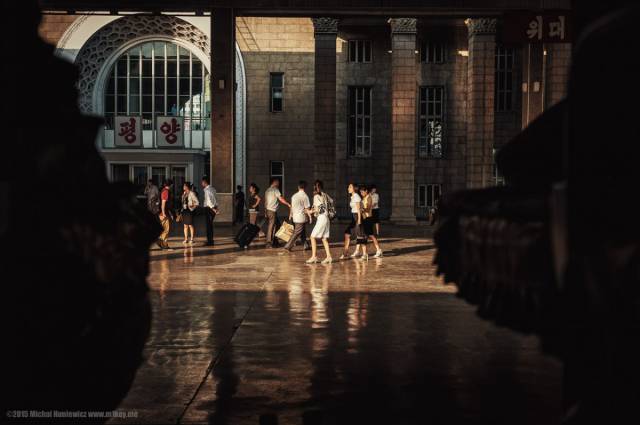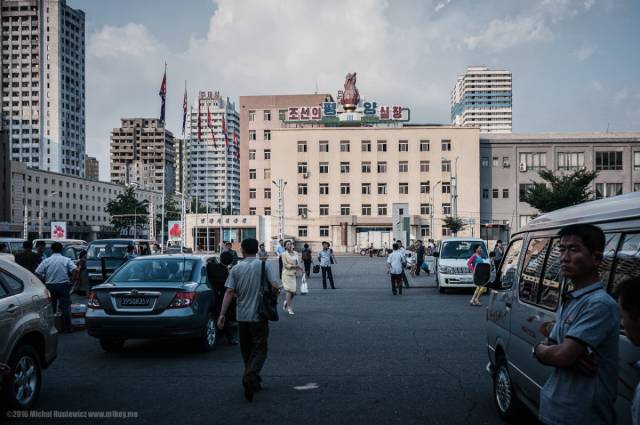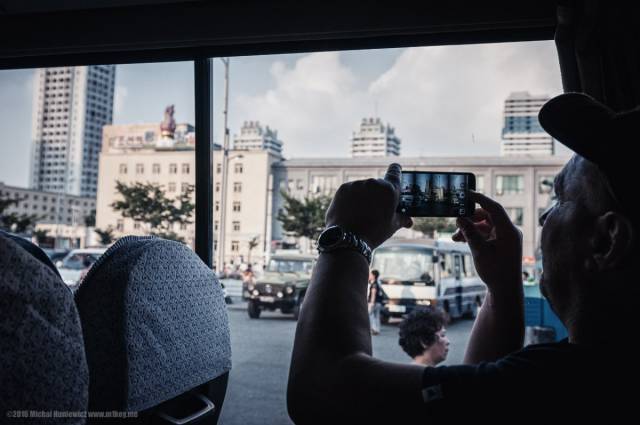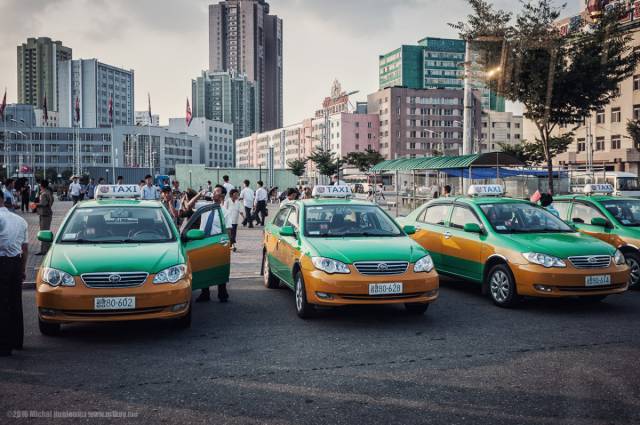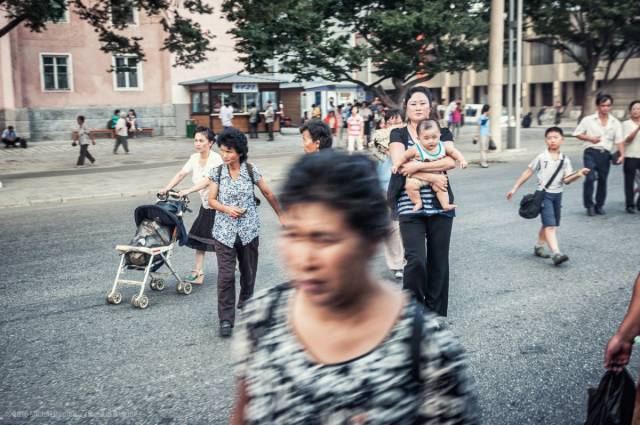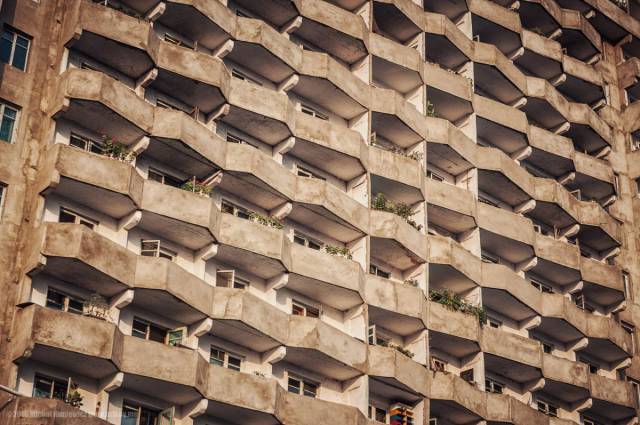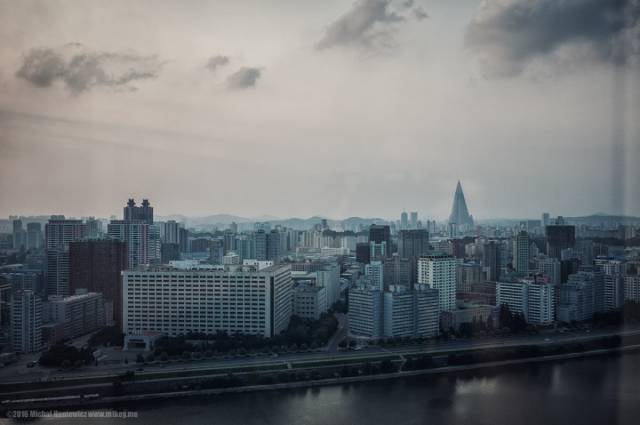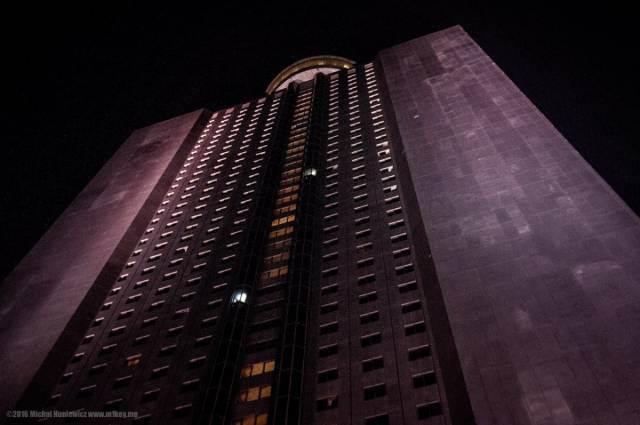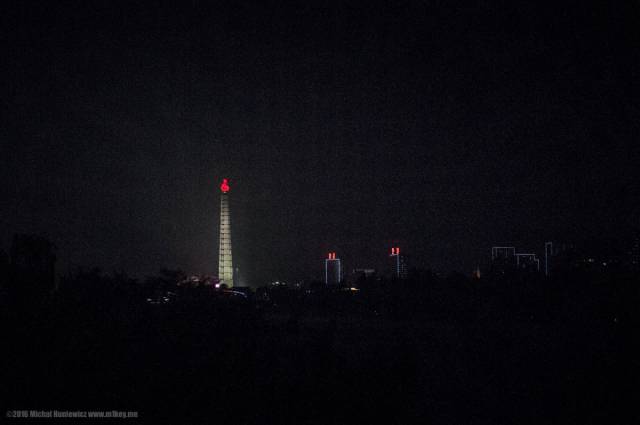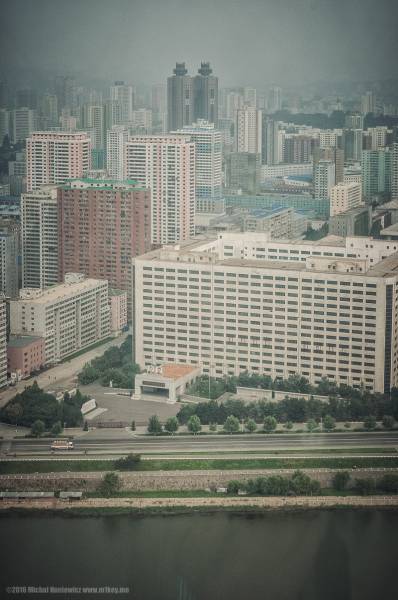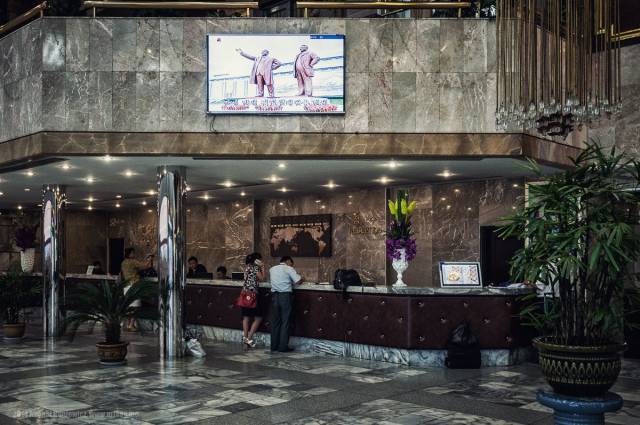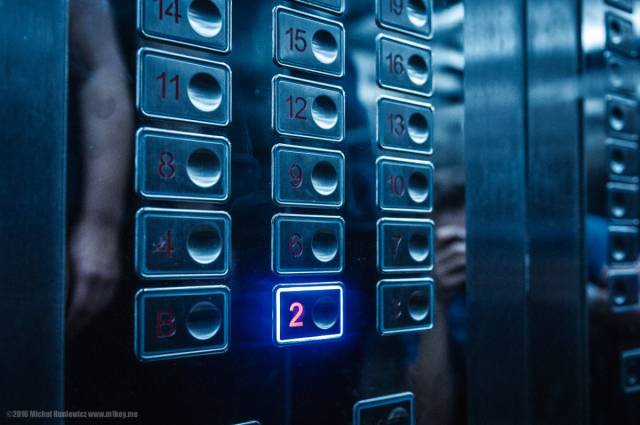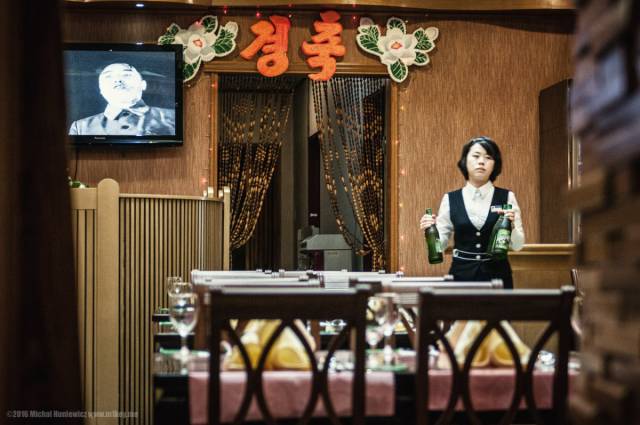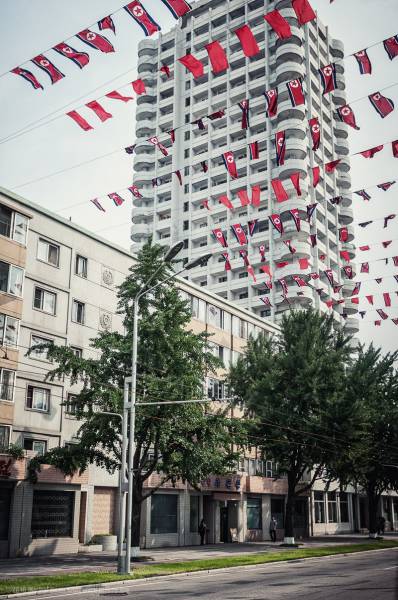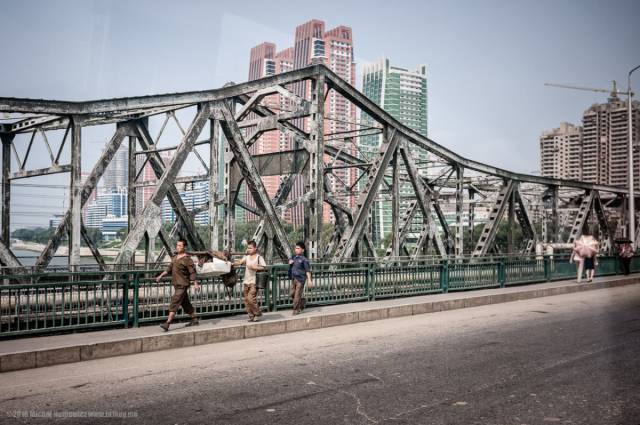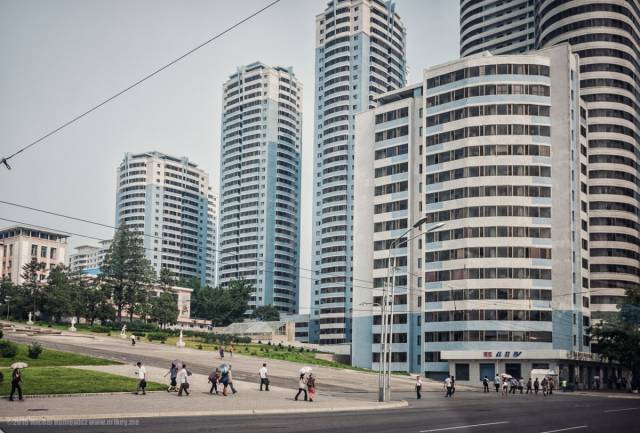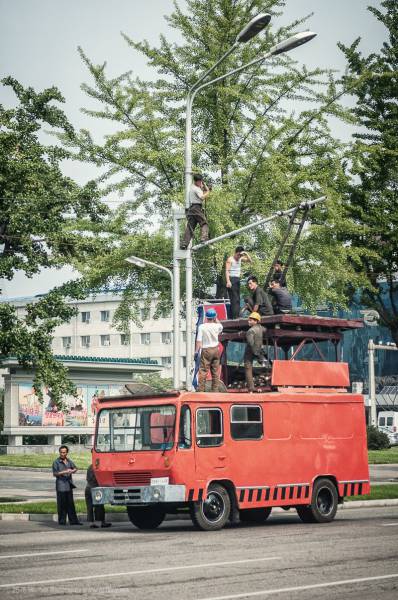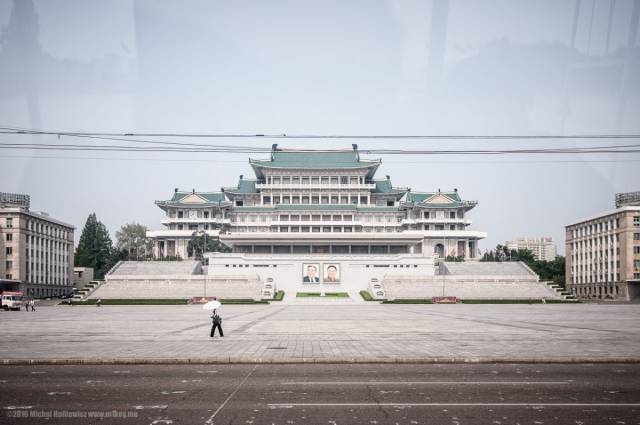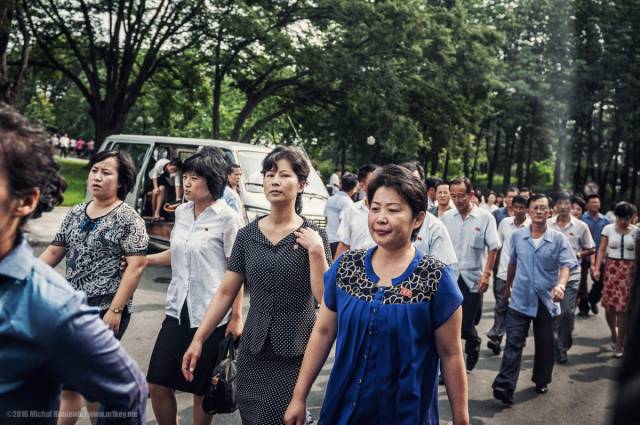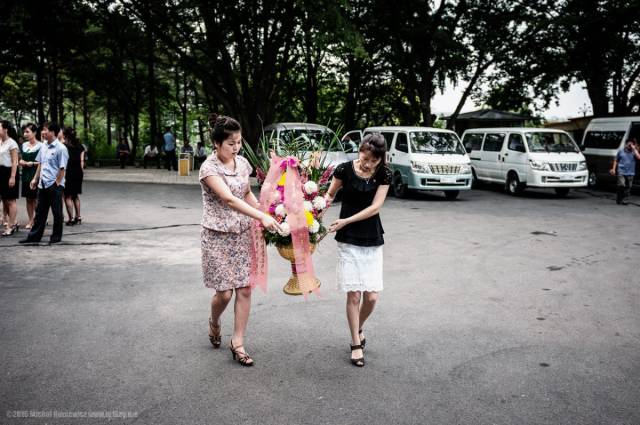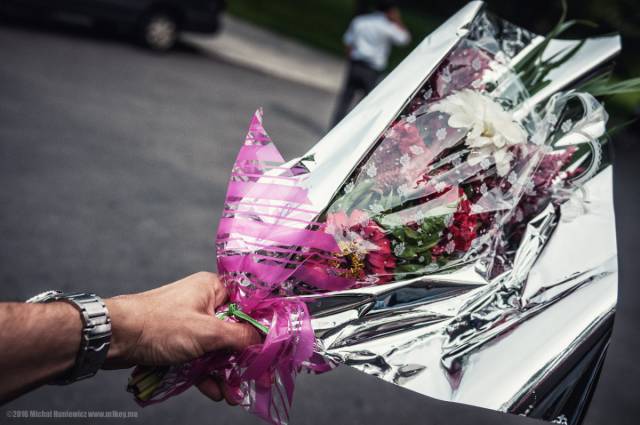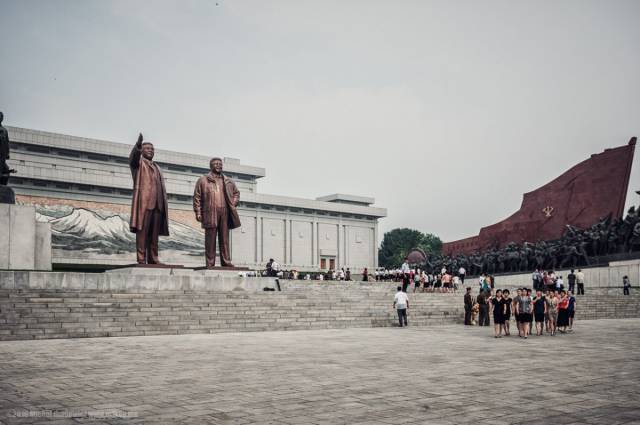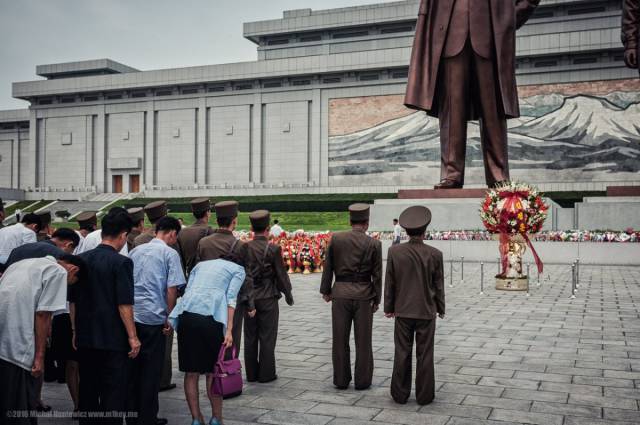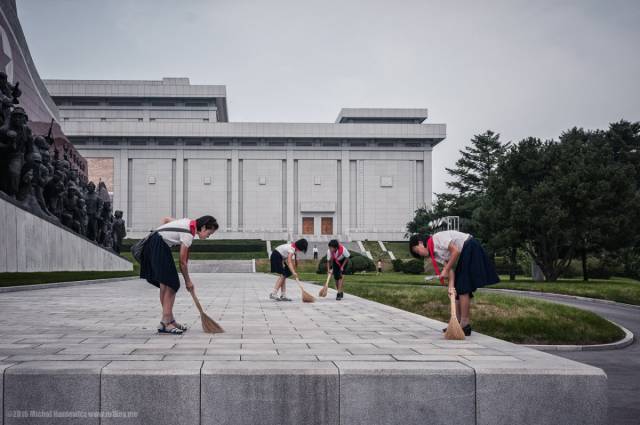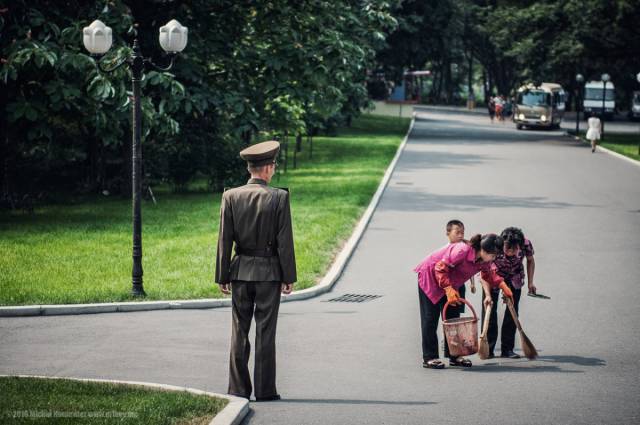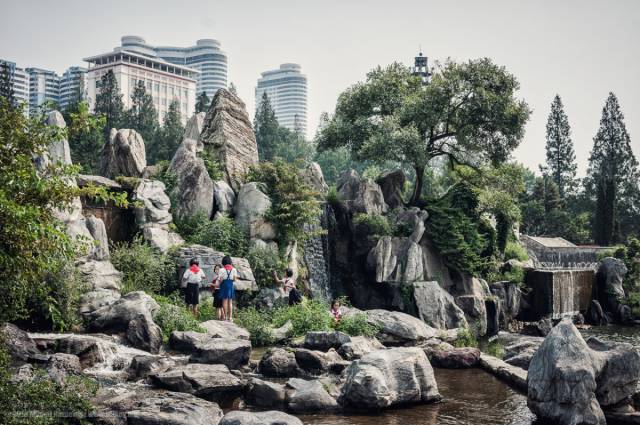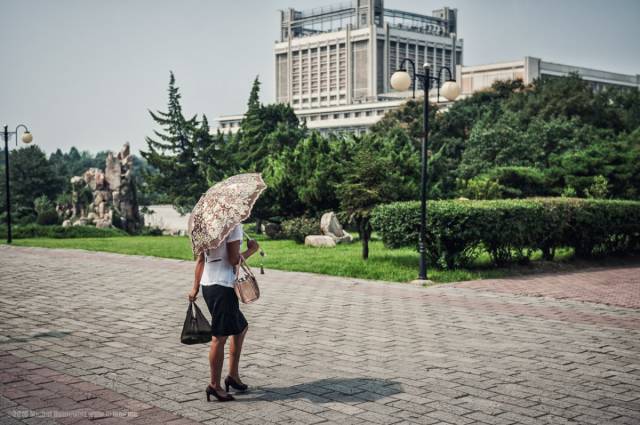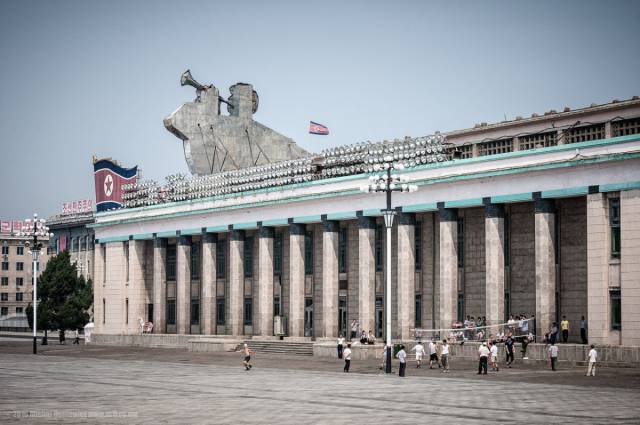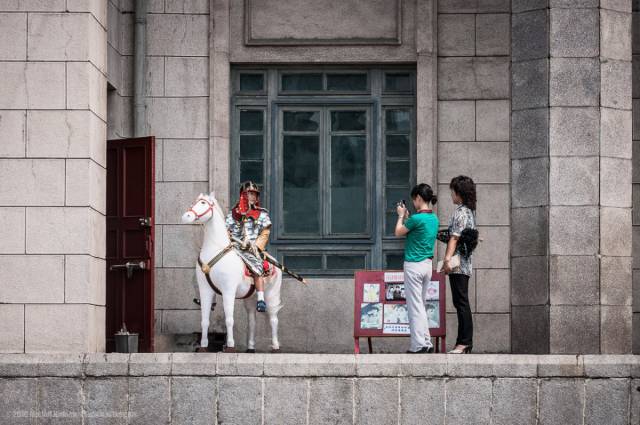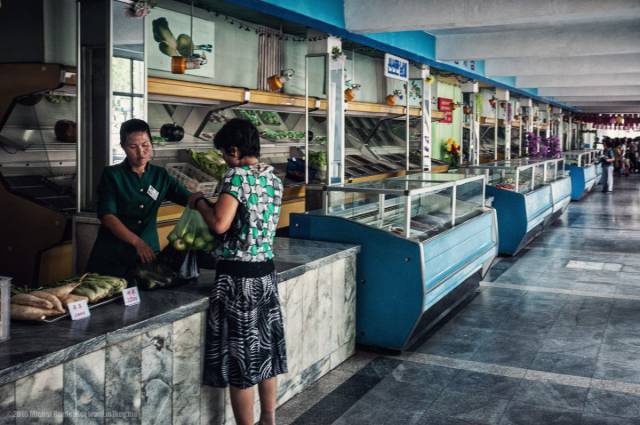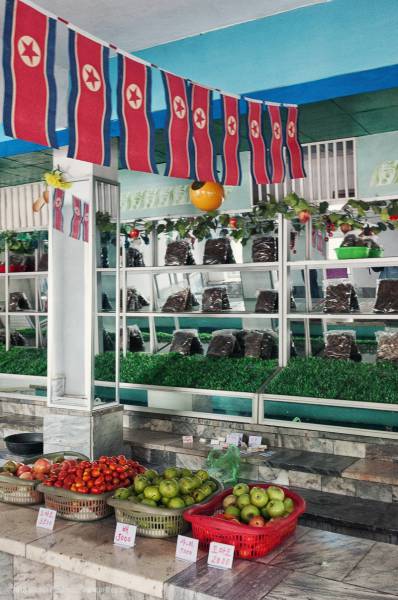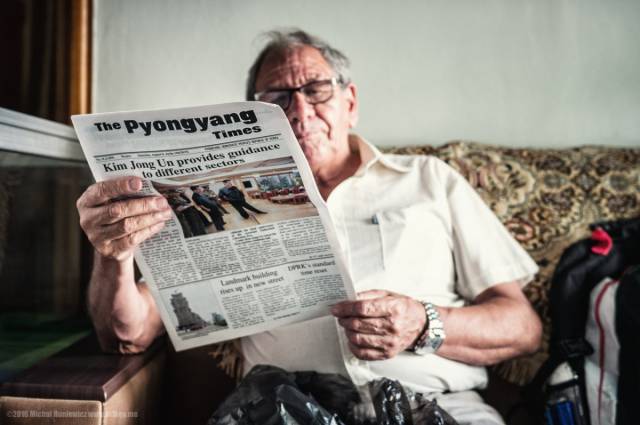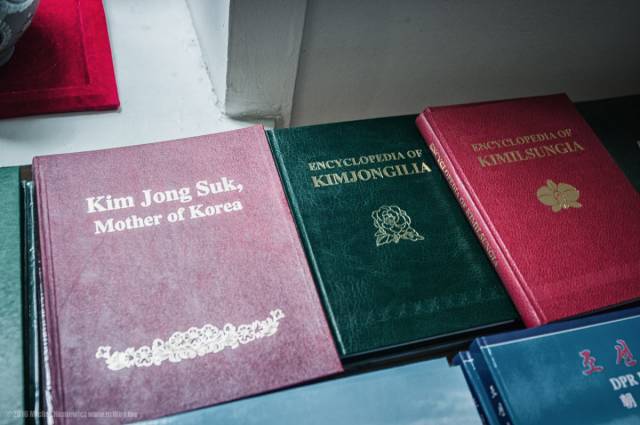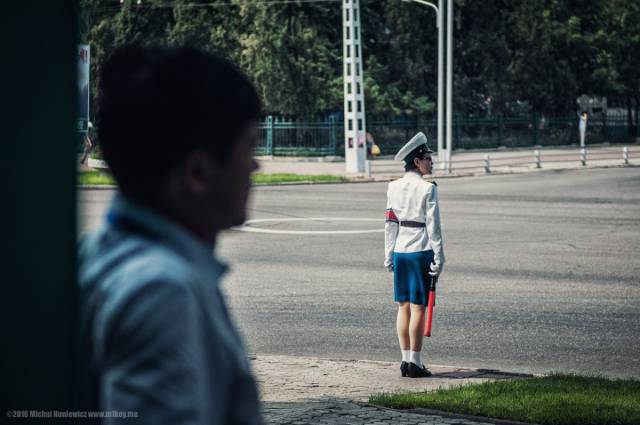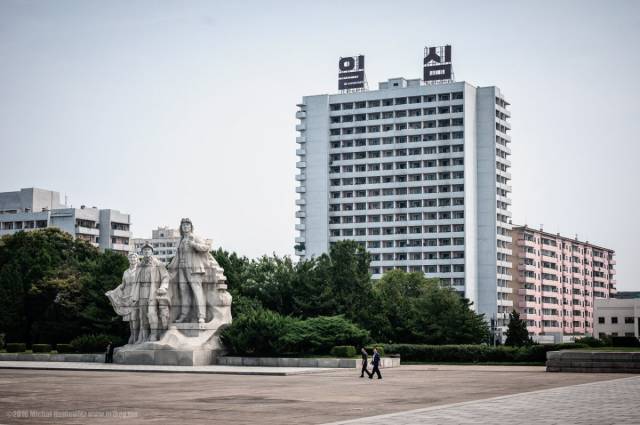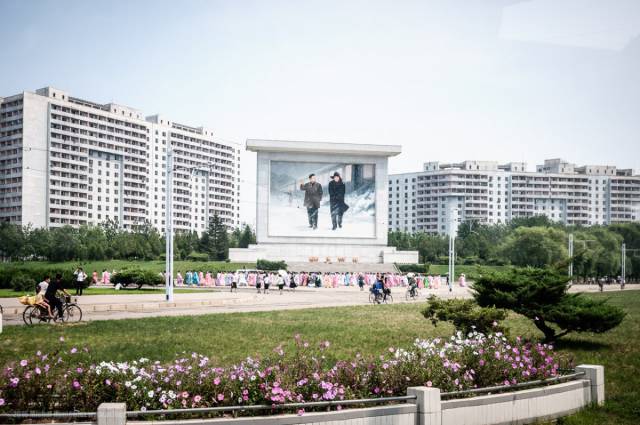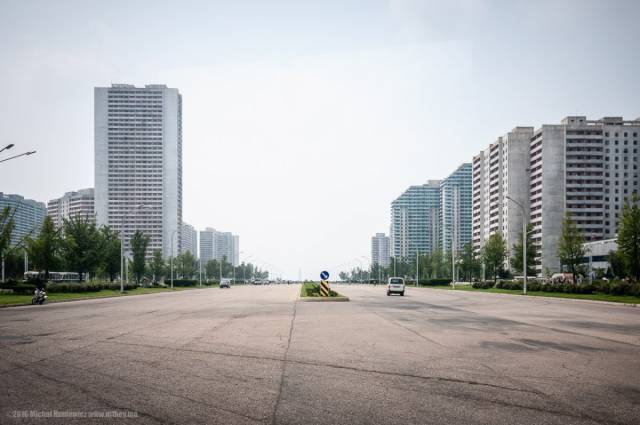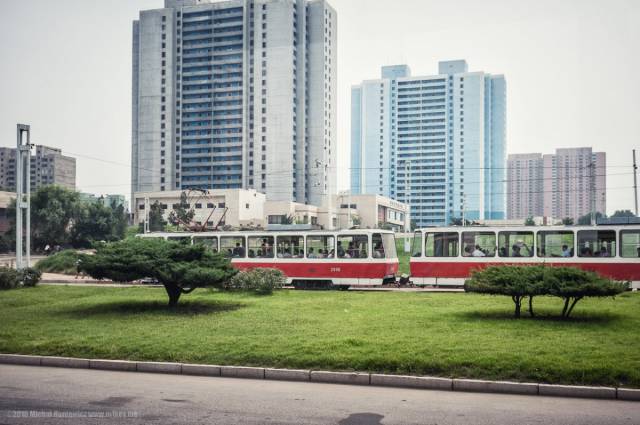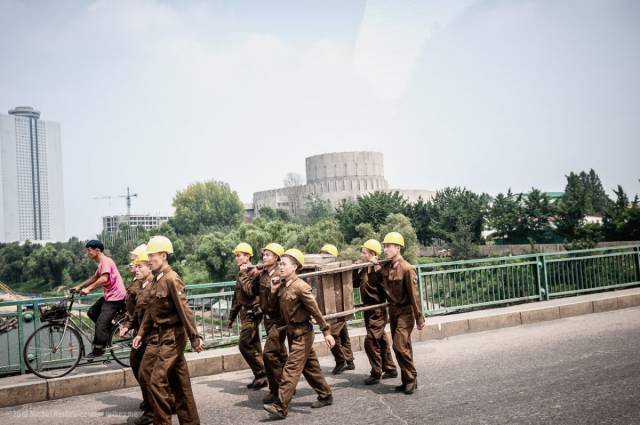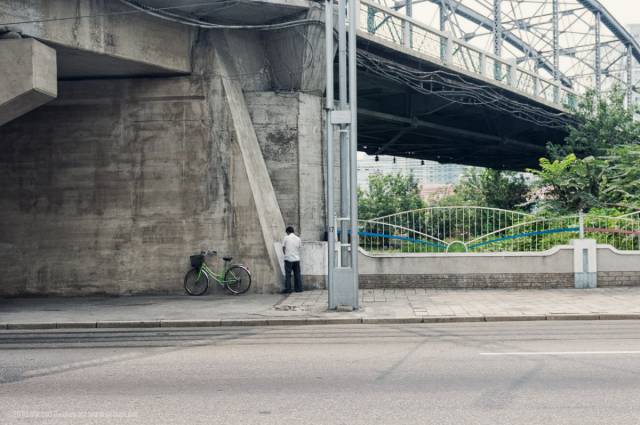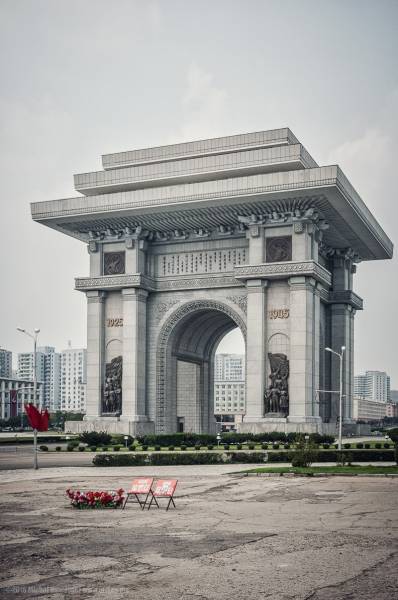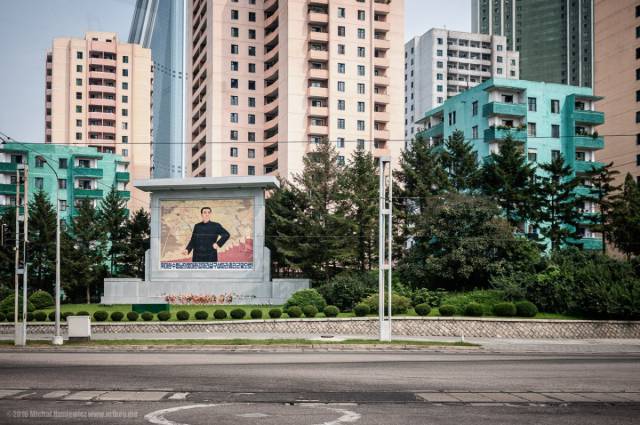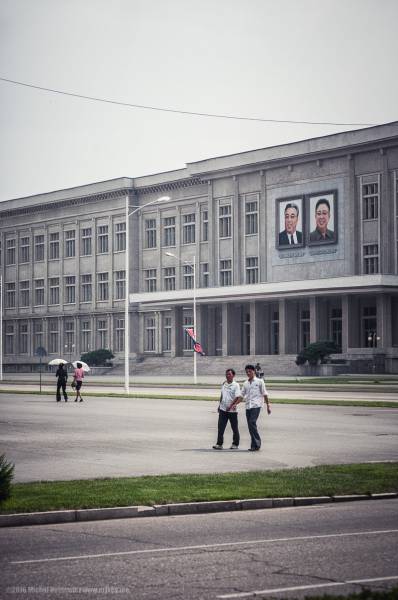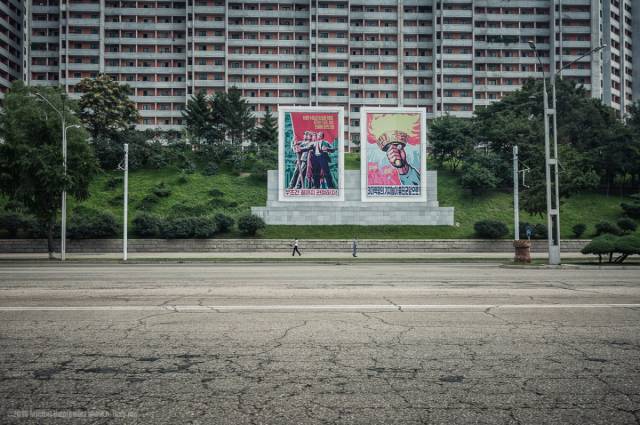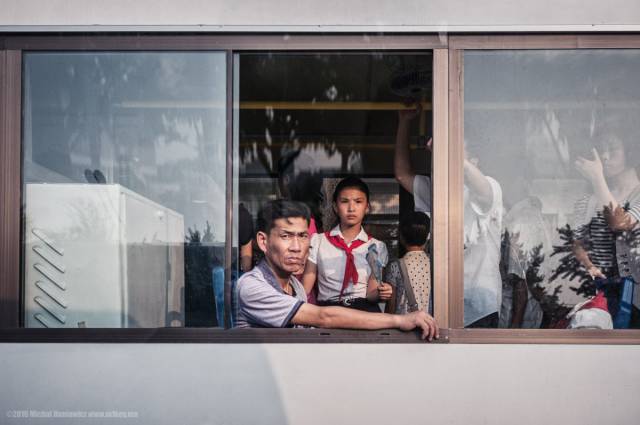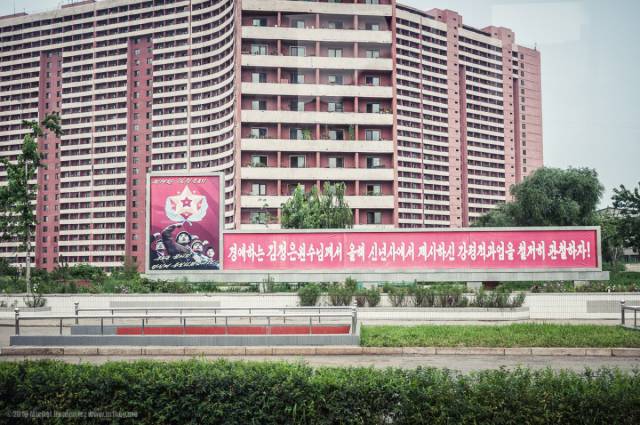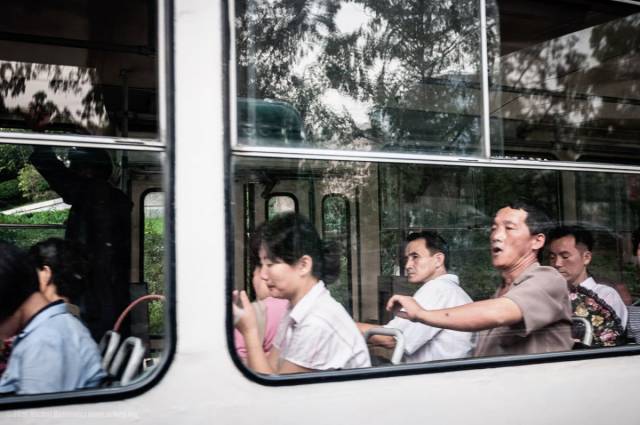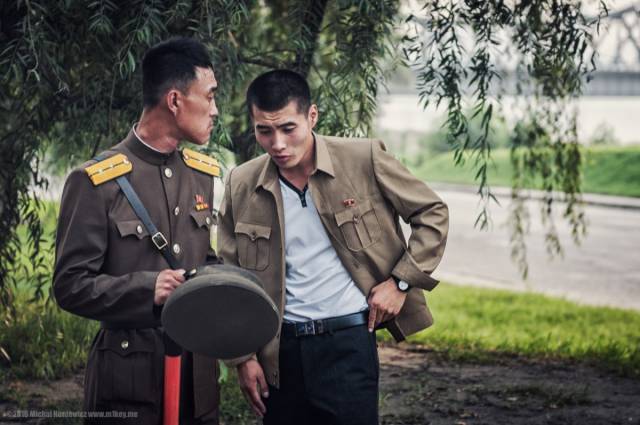An American tourist has visited North Korea recently telling the stories behind the photos and what he learned about the country. I find his story one of the most fascinating I ever had to read about North Korea and its capital Pyongyang.
China borders North Korea on the Yalu River. That's one way to get a taste of North Korea if you have not obtained a Visa (also, the only way if you're South Korean — South Koreans cannot get the Visa at all). You take a boat that even takes a detour into a distributary with North Korean soil on both sides.
The Chinese city where you get to do that is called Dandong. I read somewhere that some consider it to be the most humane of Chinese cities, with most having become a polluted nightmare these days. In Dandong, a statue of Mao stands.
China now plays the role of North Korea's master. In "Dear Leader," one of the best non-fiction books on North Korea I've read, the author recalls how even the great leader Kim Jong-il was once summoned and humiliated by the Chinese (for saying North Korea might be selling weapons to Taiwan). The difference between the two countries in terms of wealth is staggering, as this photo demonstrates.
It's quite incredible to witness Chinese or South Korean tourists interacting with North Korean fishermen. You keep wondering, what are the North Koreans really thinking?
The difference between North Korea and China becomes even more apparent at night, when Dandong becomes a brilliant metropolis, while North Korea plunges into darkness. This photo shows the Sino-Korean Friendship Bridge, which connects Dandong with the city of Sinuiju, North Korea.
After a few generations living completely apart, the North and South Koreans have less and less in common. North Koreans are shorter on average because of malnutrition.
And if you're North Korean, you cannot just leave North Korea. There are watchtowers and guards everywhere. If you're caught escaping by North Korean soldiers, you end up in a concentration camp for a few months (or years). That's if you're an ordinary citizen and trying to escape because of poverty. For more important defectors, death awaits ...
If you're caught escaping by the Chinese, they send you back if you're a man. But the captured women are referred to as "pigs," and sold to Chinese men: "They’re graded according to their age and appearance. A grade one ‘pig’ fetches around 200,000 won; grade two goes for 150,000 won; and a grade three will bring in 100,000 won," Jang Jin-Sung writes in "Dear Leader: North Korea's senior propagandist exposes shocking truths behind the regime." "The brokers, who act as middlemen, take half the selling price as their fee. Grade one is equivalent to about US $1500. If you get sold for that amount, at least you go to a better house."
There is some sparse, 1950s-looking infrastructure on the North Korean side of the river.
... while China shows off these neat blocks of flats on its side.
At night, the elderly Chinese dance in the streets in unison.
The Yalu River Broken Bridge, named so after the Americans destroyed it during the Korean War. It no longer reaches the North Korean shore.
This is where you board your train to North Korea. It then slowly moves across the new bridge into North Korea, where a major customs check occurs.
At this point, you must already have your North Korean visa issued. Your visit has been approved by the Party, and you have designated guides assigned. And here's a North Korean customs declaration form. We only got one for the whole group, and, outsmarted by the rest of us, I was forced to fill it in.
It mentions GPS. My camera doesn't provide geo-tagging, but it does have a GPS entry in the menu, in case I'd like to attach a GPS unit. When a North Korean customs officer saw that in the camera menu, she grew very suspicious of my camera and wouldn't let go of it, even though every time she left our carriage (the checks on your way in are done inside the train) we tried to hide it in various places.
Ah, your typical list of belongings: We were told that if we bring any pornography into the country and they find out, they will show it to our travel companions to embarrass us, and confiscate the device.
They also searched the laptops for any Korean films, for the comedy "The Interview," and books about North Korea. Books about North Korea (even travel guides) are going to be confiscated. They didn't even look at my Kindle though. The whole check lasted 3 hours, and one of us had his film about the fall of Yugoslavia deleted for some reason.
This is the first photo I took in North Korea, from the train. It felt like landing on another planet, and looked like an Asian version of Eastern Europe from before 1989. The city is Sinuiju.
You're not allowed to take pictures from the train. There are ordinary North Koreans on the train with you, but they didn't say anything when I took these pictures. There are also uniformed North Koreans, and I avoided taking pictures when they were around.
After crossing the border, you spend a few hours on the train before you reach Pyongyang. The other option is to fly in from China — and that is your only option if you're American. Americans are not allowed on this train.
The rice fields of North Korea. Bicycles and your own two feet are the most common means of transport for most people.
Giant portraits of Kim Il-sung, the Eternal President of North Korea, his son Kim Jong-il, the Eternal Secretary of North Korea, and Kim Jong-suk, the wife of the Kim II-sung. I asked our guide about Kim Jong-il's wife. "We don't talk about her."
A railway crossing and pretty neat blocks of flats.
People on their way to what looks like a factory. "[The Korean Workers'] Party is never going to forget the comrades of Rakwon (city)" — Kim Il-so'ng.
A Party slogan says "If you survive a thousand miles of suffering, there will be ten thousand miles of happiness."
It was Kim Jong Il who decided that Kim Il-sung should be smiling in his funeral portrait.
North Koreans supposedly believe that the entire world is in awe of their achievements.
Pluralism and individualism are regarded as the greatest enemy. I understood the significance of being able to drive a car anywhere you want, when you please, where you please.
After the Korean War, North Korea was economically a more attractive destination than South Korea, and many people, including 100,000 ethnic Koreans from Japan, were welcomed into North Korea.
"Juche," or self-reliance, is the ideology of North Korea. But the omnipresent poverty, that even your guides won't dispute, makes one doubt how self-reliant North Korea really is, especially with its dependence on international aid (which is explained to ordinary North Koreans as the spoils of war).
North Korean soldiers (a doubly-illegal photo).
Turns out that the North Korean language has two distinct registers of speech, one relating to the Leader, and one for everyone else. For example, you'd never use words such as "dear" to refer to your loved ones.
You are supposed to truly love the Leader alone, and the North Korean song "Mother" tells you how motherly love is nothing compared to the love of the Communist Party.
Patiently waiting for the train to pass ...
An elderly couple.
Very dignified.
The unspoiled North Korean landscape made us speculate about what it would be like to visit the country once it shakes off its shackles.
This was one of the strangest moments, when we finally arrived in Pyongyang. Through the curtains of the compartment window, we looked at a surreal scene that appeared like something out of a theater in its perfection and artifice ...
Elegant men, beautiful women, walking in a simulated hurry, travellers without a reason (ours was the only train that day), all to impress us and so that the station doesn't look empty.
A few steps on the platform and we were intercepted by our two guides, who wouldn't leave us until the end of the stay, except sometimes in the hotel. As you leave the train station, Pyongyang seems like an ordinary city, although quite extraordinarily clean and not very loud or busy.
They didn't let us walk anywhere. Within maybe a minute or two from leaving the train we were all squeezed into a minivan that would be our second home for the entire stay. As you can see, it's now OK to take your smartphone with you, although there will be no reception or WiFi anywhere. Your phone will be searched on your way out.
This was how most photos would be taken — through the minivan window.
You have to be fast. Soon we noticed that while Pyongyang is meant to be a utopian showcase for foreign visitors like ourselves, there are more glamorous bits, and there are less glamourous bits.
What's more, our mute driver was perfectly aware of this, so he would conveniently slow down whenever the surroundings were impressive, and speed up whenever they were less pleasant, to make them more difficult to photograph. One of us said that taking photos in North Korea was therefore like Olympic archery.
This is what Pyongyang looks like from the Yanggakdo Hotel ...
On the left, the Koryo hotel, which reportedly caught fire recently. This is where you will stay if you are Chinese. The Chinese are given a lot more freedom compared to anyone else. The hotel is in the city center, and the tourists staying there can walk around the block on their own, and get away with crossing the streets (although it's officially not allowed).
On the right, the Ryugyong, aka the Hotel of Doom. The 330 meter building stands largely empty, as North Korea doesn't have the funds to finish its construction (started in 1987).
Non-Chinese visitors stay here, in the Yanggakdo Hotel, which happens to be located on an island. I believe I read somewhere (a Pyongyang comic book?) that you used to be to leave the hotel and walk around the island freely, but that's no longer the case.
Before entering North Korea, we were told by our Chinese guide (who did not enter North Korea with us) what would happen if you decided to ignore the limitations and take a stroll outside of the allowed area.
Provided they don't stop you immediately, you'd be arrested, threatened, and then forced to pay in order to be released (the person who actually did do it had to pay $10,000 USD). If you are American, all bets are off, though.
In the hotel, our North Korean guide said "Because you no longer have your passports, you will not be allowed to walk on your own, since if you are wounded in a car accident, hospital staff will not know who you are."
Meet our guides. We could not leave the hotel area without them. She was clearly the "good cop," and even sang a song for us. He was the "bad cop," and we reasoned he must have had some military authority, as soldiers would salute him upon inspecting his papers. His voice would tell us to go to sleep and wake us up with a morning call.
The rumor is that the fifth floor of the hotel is entirely dedicated to the surveillance of the guests. Some people managed to visit it (the door is usually closed when you take the stairs), so it's worth Googling.
The waitresses serving us often seemed a little terrified. This was our first night in North Korea. We dined in the hotel's basement, in a small room, debating whether it was bugged, and wondering whether we could trust one another (the whole group was 7 people).
And then this awkward moment happened in the hotel. Suddenly, the bad cop showed up. We all went silent.
"You want to know the one, most important rule of being in North Korea? The number one rule?" he asked.
"Uh, yeah, sure," we said.
The waitress interrupted him and then he excuses himself, disappearing for two minutes before coming back.
"All right, breakfast's at eight," he said, before walking away.
"Excuse me, you said something about the most important rule?"
"The most important rule? Ha ha," he said with hollow laughter before becoming totally serious. Then he walked away looking indifferent.
The city center also sports these colorful skyscrapers, unlike any other buildings I've seen. Various bits of infrastructure, like the bridge, look seriously neglected though.
I think they were really proud of this area, as they were taking us there constantly.
Blaine Harden, in his book about the only known prisoner to have successfully escaped from a "total-control zone" grade internment camp in North Korea, Shin Dong-hyuk, writes that the Kim family dynasty has failed to build or maintain a reliable national electricity grid ...
... even though the mountains of North Korea are crisscrossed with swift rivers, large and small. Prior to the partition, 90% of the electricity on the Korean Peninsula came from the North.
Although Pyongyang has two power stations, the electricity supply is in a perpetual state of emergency. Neither power station produces enough power to supply more than one district at a time. What does that mean for the Yanggakdo Hotel rotating restaurant? It only rotates very rarely!
In the center of the capital, at the Kim Il-sung Square, the Grand People's Study House stands big and proud, exactly in front of the Juche Tower on the other side of the Taedong River ...
It seems that everyone living in Pyongyang has to wear this badge, and you cannot just buy it. Supposedly they may give it to you if you're obedient and don't ask stupid questions — or you can buy a counterfeit one in China. So where are all of these crowds coming from and going to?
The Eternal President of North Korea, Kim Il-sung, expects worship. Hence an endless flow of people with flowers to place at the foot of his statue.
They even made me pay for them. Fine.
Here they are, the father significantly more elegant than the son, who, unlike in real life, isn't wearing shoes with heels. Initially, he was wearing a coat too, but they replaced it with the parka.
This place is called Mansu Hill Grand Monument, and you are informed that "visitors who take photos of the statues are required to frame both leaders in the entirety of their picture."
What's the last time you saw a kid in the West cleaning anything? Also, the statue on the left features a North Korean soldier stepping on an American flag.
It doesn't seem like people volunteered to keep the place clean ...
Since South Korea is no longer providing fertilizer, North Koreans are charged with collecting their feces in the winter for spring planting. This is used to produce toibee, a fertilizer in which ash is mixed with human excrement. Factories and public enterprises have been ordered to produce two tons of toibee.
Shin Dong-hyuk recalls students working in winter, handling metal rods without gloves, which sometimes meant ripping skin from one's hands. A punishment for complaining was sticking one's tongue to a freezing piece of metal so that it would stick.
When I thought of going to North Korea, I worried I wouldn't be able to keep a straight face seeing all of that absurdity all around. But when you actually are in North Korea, it's just not funny. It's utterly horrible.
Socialism supports sport activities, especially the team ones, to build a sense of community. Here, a group of people are playing volleyball at the Kim Il-sung Square.
We also saw this nice scene.
In North Korea, there are places you can visit and places you cannot visit, and the latter are far more numerous. Well, this is one of them. Usually, we were accompanied by our guides, one in the front, one in the back ...
But at one point they were both in the front, which allowed for a literally 15-second-long detour into this ordinary shop for North Koreans. That gave me maybe 10 seconds to take this and the following picture, before being kicked out by our guide playing bad cop, and the atmosphere became rather unpleasant. I'm not sure if he saw me taking these pictures.
That's more than $5 USD for those apples. But you never get to handle the local currency called Won. From tourists, they will accept Chinese Yuan, Euros, or the currency of the Great Enemy, the all-mighty dollar.
Pyongyang Times is a weekly magazine that was launched in 1965, and is published in English and French. The front page is usually dedicated to the ruling Kim visiting various places and handing out precious advice ...
The magazine claimed that "if the Olympic Games were to be held in South Korea, many sportsmen and tourists of the world would meet death, infected with AIDS," as so many people had supposedly been deliberately infected by American soldiers.
This was in a shop with souvenirs that sold books (Kim Jong-il's aphorisms and such), postcards, and posters, among other things.
There were many guides in the shop. Some of the guides were watching over us inside, another made sure we didn't leave the shop.
Social realism in sculpture.
They took us to this spot over and over again, maybe they were really proud of the mural.
There was never much traffic in Pyongyang. How were we supposed to participate in a car accident?
The tram and buildings reminded me of Sarajevo.
Workers carrying an object across the bridge.
All the modest elegance and cleanness of Pyongyang ... and then we saw this!
Built to commemorate the Korean resistance to Japan from 1925 to 1945, this is the second-tallest triumphal arch in the world. The first tallest one is in Mexico.
Another socialist mural in Pyongyang.
Men and women in Pyongyang. We were told old marriages in North Korea were arranged.
I found the socialist architecture brutal and oppressive.
Inhabitants of Pyongyang commuting to work.
Blocks of flats in Pyongyang.
More commuters.
Two soldiers in Pyongyang.

